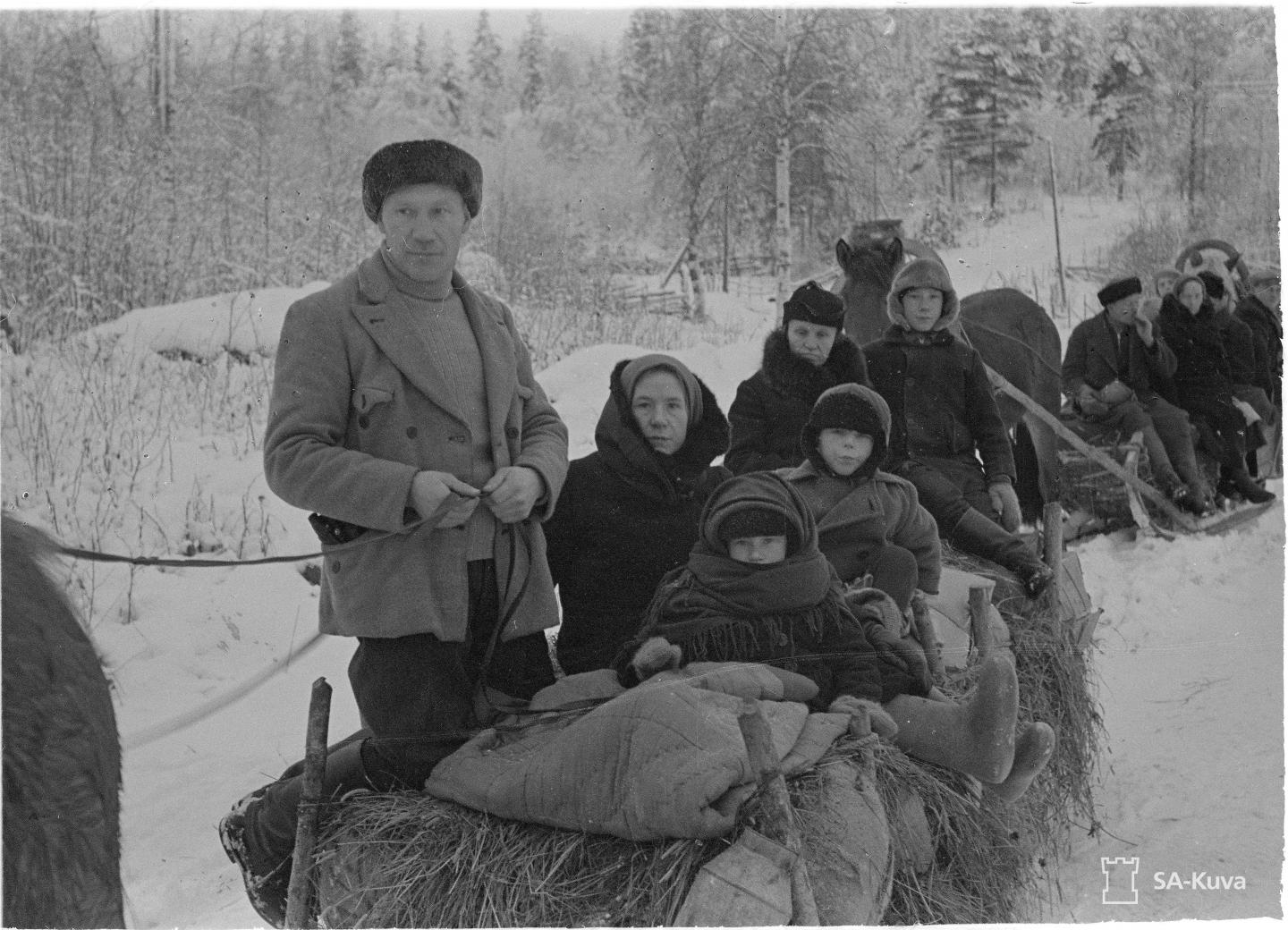
Credit: SA-Kuva
Researchers from the Universities of Helsinki, Turku and Missouri as well as the Family Federation of Finland present the first results from a new, extraordinarily comprehensive population-wide dataset that details the lives of over 160,000 World War II evacuees in terms of integration. The results demonstrate that migrants’ integration into a host community involves a trade-off between gaining increased social status and having fewer children.
Evacuees from Karelia, a region ceded by Finland to the Soviet Union during World War II, had the unfortunate fate of having to evacuate from their home twice in the space of a few years. Evacuees fled to western Finland at the beginning of the war, but then many of them returned to their homes for 2 – 3 years when the territory was recaptured by Finland, only to have to evacuate again at the end of the war.
“This exceptional historical event provides a natural experiment, which allowed us to analyse the likelihood of various social groups returning to their natal communities when offered the opportunity,” explains Robert Lynch, the first author of the article from the University of Turku, Finland.
The data also allowed a comparison between people who chose to return home with those that did not as they lived side by side in post-war western Finland.
Evacuees who returned to their homes after initial evacuation had more children after the war than those evacuees who stayed in western Finland for the entire war. It appears that the stronger bond to their natal community and the social and familial ties that come with it had a positive effect on fertility. However, after their second evacuation they were less likely to integrate and intermarry with people in western Finland, consequently missing out on opportunities to increase their social status.
On the other hand, the evacuees who stayed in western Finland for the entire war ended up having fewer children, but they intermarried with the host population in western Finland at a higher rate and thus, were more likely to increase their social status.
Like many migrants and refugees today the world over, the evacuees in the study faced choices between keeping strong social bonds with their natal communities and fellow migrants and integrating to form relationships that bridge the differences between groups. The research shows that the choices made had real consequences for the migrants’ future fertility and socioeconomic status.
“Together, these results have important implications for understanding the migrant experience today and can be useful background knowledge for policy makers desiring to promote social cohesion,” says John Loehr, senior author on the article from the University of Helsinki, Finland.
More broadly, however, these results can be viewed from a cultural and evolutionary perspective that considers the importance of balancing the human predisposition for tribalism and our need to have distinctive group level identities with the need for social cohesion. In other words, the degree to which people prioritize their own ethnic group, culture, family or region vs the importance they place on building new relationships and bridges with people from different groups and backgrounds impacts their life course, the opportunities they are likely to encounter and how they interact with others.
###
Media Contact
Robert Lynch
[email protected]
Original Source
https:/
Related Journal Article
http://dx.




